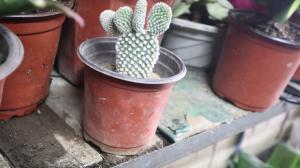Can Cats Eat Aloe Plant?
Many pet owners who have indoor plants at home may wonder if it is safe for their cats to come in contact with the plants. One of the plants that might catch their attention is Aloe Vera.
In this article, we鈥檒l explore whether cats can eat aloe plant, what potential dangers it poses to cats, and how to keep your cats out of harm's way.
What is Aloe Plant?
Aloe plant, also known as Aloe Vera or medicinal aloe, is a succulent plant species that belongs to the genus Aloe. It has thick, fleshy leaves that contain a clear, gel-like substance that is widely used in cosmetics, medicine, and food.
Aloe plant is an excellent addition to any indoor garden as it requires minimal care and is easy to grow. It also offers numerous health benefits for humans, such as treating sunburn, improving digestion, and boosting the immune system.
Can Cats Eat Aloe Plant?
The short answer is no. Aloe plant is toxic to cats and can cause mild to severe symptoms when ingested. Even a small amount of aloe plant can make your cat sick.
The reason for this is because Aloe Vera contains saponins, which are a natural detergent-like substance that can cause gastrointestinal upset, vomiting, and diarrhea when ingested by cats. Saponins can also cause anemia, tremors, and seizures in cats if they consume a large amount of the plant.
Furthermore, the latex portion of the Aloe Vera plant can be harmful to cats when ingested. It contains aloin, a laxative that can cause abdominal pain, cramping, and dehydration in cats.
What Are the Symptoms of Aloe Plant Poisoning in Cats?
If your cat has ingested Aloe Vera, watch out for these common symptoms of plant poisoning:
- Vomiting
- Diarrhea
- Loss of appetite
- Dehydration
- Lethargy
- Depression
- Tremors
- Seizures
If you suspect that your cat has eaten aloe plant, take them to the vet immediately. The vet will perform a physical exam, run tests, and provide appropriate treatment to manage your cat's symptoms.
How to Keep Cats Away from Aloe Plant?
The best way to prevent your cat from coming in contact with Aloe Vera is to keep the plant out of their reach. Here are some tips to help you create a safe indoor environment for your cat:
- Place Aloe Vera in a location that is inaccessible to your cat, such as a high shelf or a hanging basket.
- Use a spray bottle to discourage your cat from getting too close to the plant. Cats generally dislike the smell of citrus or vinegar, so you could add a few drops of lemon juice or vinegar to the water in your spray bottle.
- Provide your cat with plenty of safe and cat-friendly toys to keep them occupied and away from your plants.
- If you have multiple cats in your home, consider using a baby gate or a cat fence to keep them away from plants and other dangerous items.
Conclusion
While Aloe Vera may offer many health benefits for humans, it can be dangerous to cats. Cats cannot eat aloe plant or come in contact with it safely. If your cat has ingested aloe plant, take them to the vet immediately. Always keep potentially hazardous plants out of your cat's reach to ensure their safety and well-being.

 how many times do yo...
how many times do yo... how many planted tre...
how many planted tre... how many pine trees ...
how many pine trees ... how many pecan trees...
how many pecan trees... how many plants comp...
how many plants comp... how many plants can ...
how many plants can ... how many plants and ...
how many plants and ... how many pepper plan...
how many pepper plan...



























